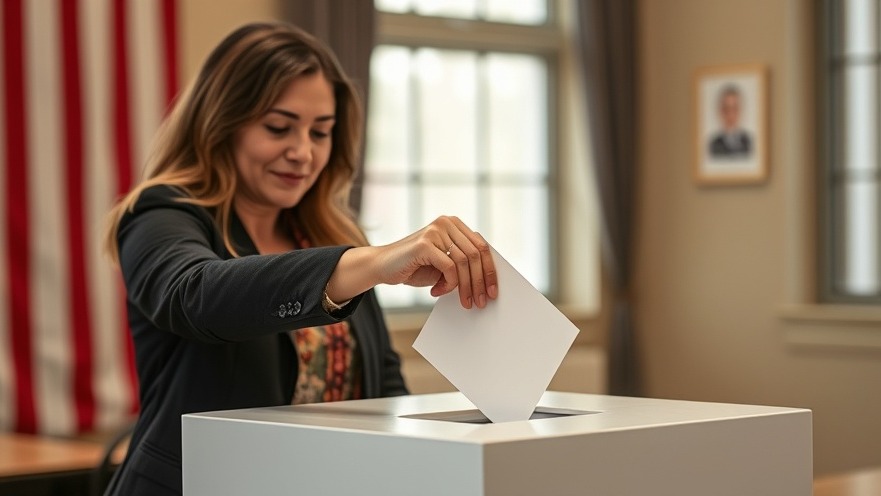
Texas Takes Action on Alleged Noncitizen Voting
In a recent announcement, Texas Secretary of State Jane Nelson has referred 33 individuals to the state Attorney General’s office for investigation, based on suspicions they may have voted as noncitizens in the November 2024 general election. This action follows a broader initiative in Texas and other states to scrutinize voter rolls, amidst ongoing debates over voter integrity.
Understanding the Context of Voter Verification
This move to refer potential noncitizen voters comes in the wake of heightened scrutiny on voting processes. Texas officials, building on newly acquired access to a federal database, have been able to cross-check voter data against records managed by the U.S. Citizenship and Immigration Services (USCIS). While this could help confirm the legitimacy of many voters, only a minuscule portion of the electorate, approximately 0.0003%, is under suspicion.
Historically, claims of widespread noncitizen voting have often flared up without substantial evidence. In fact, documented cases have proven exceedingly rare. During the last legislative session, a bill aimed at enforcing stricter voter ID requirements based on citizenship failed, showcasing the divided opinions on voter registration laws in Texas.
Political Implications of the Investigation
The referral of these 33 voters is part of a broader, politically motivated initiative by Texas Republicans, who are currently pushing for a constitutional amendment that would further solidify the stipulation that only U.S. citizens can vote. Despite established laws already being in place reinforcing this rule, the amendment is seen as an attempt to rally support ahead of elections.
This push comes on the heels of Governor Greg Abbott's earlier claim about the removal of 6,500 individuals from voter rolls who were identified as potential noncitizens, a number that was later debunked by investigations revealing that only 581 were actually identified correctly. This kind of misinformation raises questions about the integrity of claims made by state officials regarding voter fraud.
A Clear Disconnect Between Data and Reality
Despite the fears surrounding noncitizen voting, the statistical reality paints a different picture. The recent investigation from the joint efforts of Votebeat, Texas Tribune, and ProPublica underscores the risk of falsely labeling eligible voters as noncitizens, leading to their wrongful removal from the rolls. Just last year, a similar saga unfolded when the state alleged that 95,000 registered voters were potentially noncitizens, which was later revealed to be largely incorrect.
The Future of Voter Integrity Laws in Texas
As these developments progress, it's crucial to examine the future trajectory of voter integrity laws in Texas. With many states now engaging in similar investigations and policy implementations, the potential for conflicting voter laws creates a complex legal landscape. The outcomes of these initiatives could reshape not just Texas, but serve as a bellwether for other states contemplating similar measures.
Understanding the Broader Impact
For citizens, the ramifications of these investigations extend beyond mere statistics; they speak to the fundamental trust in the electoral process. If eligible voters are systematically flagged or removed and the state fails to communicate transparently, faith in democratic systems could erode. For those in the political arena, especially in a state as influential as Texas, the implications of these actions could resonate far beyond the state lines and into national debates on voting rights and authenticity.
Call to Action: Stay Informed
As Texas continues navigating the complexities of voting laws and the implications of these investigations, it is essential for citizens to remain informed. Engaging in discussions around voter rights and integrity not only empowers voters but also strengthens the democratic process. Sign up for local news updates and be part of the conversation that shapes Texas’s electoral future.
 Add Element
Add Element  Add Row
Add Row 



Write A Comment